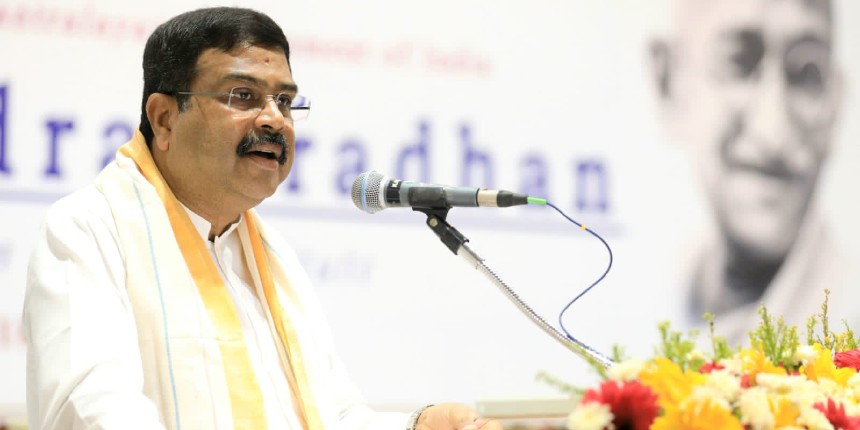NCrF to play key role in enhancing economic convertibility of education, says Dharmendra Pradhan
Press Trust of India | November 21, 2022 | 06:07 PM IST | 2 mins read
NCrF is an umbrella framework for skilling, re-skilling, up-skilling, accreditation and evaluation in educational and skilling institutions.

NEW DELHI: The National Credit Framework (NCrF) will be instrumental in enhancing economic convertibility of education by bringing a vast majority of population under the fold of formal education and skilling, Union Education Minister Dharmendra Pradhan said on Monday.
NCrF is an umbrella framework for skilling, re-skilling, up-skilling, accreditation and evaluation in educational and skilling institutions. Speaking at a stakeholders' consultation on the framework at the Indian Institute of Technology (IIT), Delhi, Pradhan said the NCrF will also help achieve the Gross Enrolment Ratio targets and accelerate India's march towards becoming a USD 5 trillion economy.
"The National Education Policy (NEP), 2020, envisages universalisation of credit framework for removing barriers between knowledge, skills and employability, establishing a credit accumulation and transfer system for all kinds of learning for ensuring seamless mobility between learning and skilling pathways," he said.
Pradhan noted that in order to reap India's demographic dividend, a level playing field has to be provided to the people. "This can only be achieved by recognising, accounting and formalising all kinds of conventional, unconventional and experiential knowledge repositories. NCrF will provide us with an opportunity to recognise applied aspects of knowledge and skills. "The framework will create new possibilities for lifelong learning and skilling. It will boost per capita productivity, empower all and lay a strong foundation for India to lead this century," he added.
Also read | NCERT, education ministry invites ideas, suggestions for National Curriculum Framework
Under NCrF, school students will be able to earn credits from academic and non-academic activities, which will be stored in the Academic Bank of Credit (ABC), just like in higher education. The NCrF has been jointly developed by the University Grants Commission, All India Council for Technical Education, National Council for Vocational Education and Training, National Institute of Open Schooling, CBSE, NCERT, Ministry of Education (MoE), Directorate General of Training, and Ministry of Skill Development.
The MoE had last year approved the formation of a high-level committee to develop a National Credit Accumulation and Transfer Framework for both vocational and general education. The 11-member committee is headed by Nirmaljeet Singh Kalsi, chairperson of National Council for Vocational Education and Training. According to the report brought out by the committee, while a student can earn up to 40 credits for learning up to 1200 hours per year, for pre-school up to Class 5, the learning hours range from 800 to 1,000 hours.
Follow us for the latest education news on colleges and universities, admission, courses, exams, research, education policies, study abroad and more..
To get in touch, write to us at news@careers360.com.